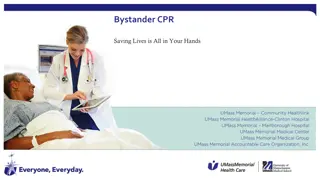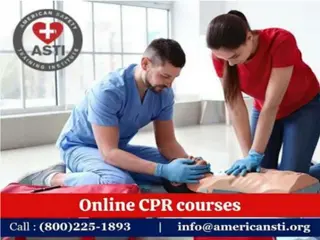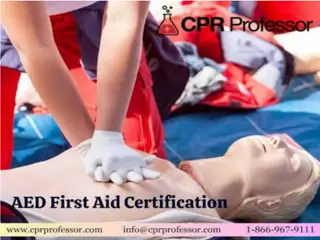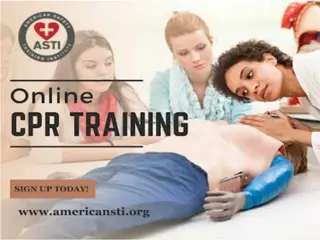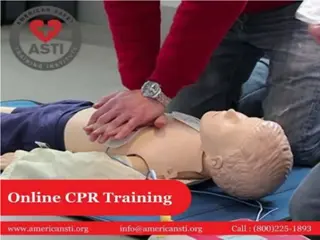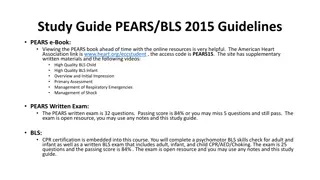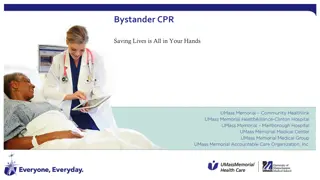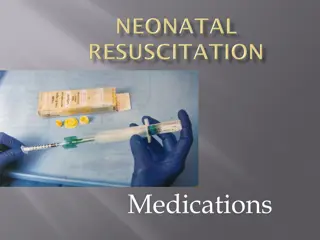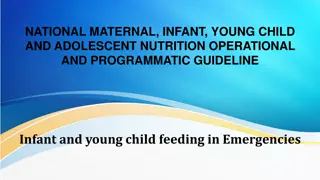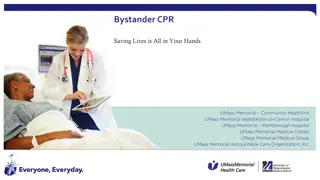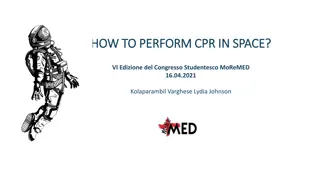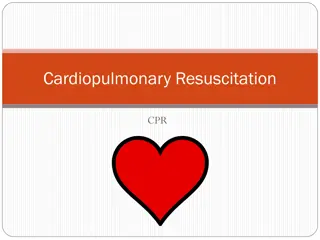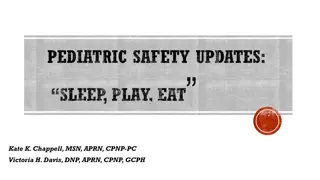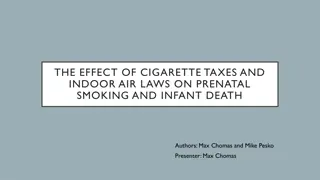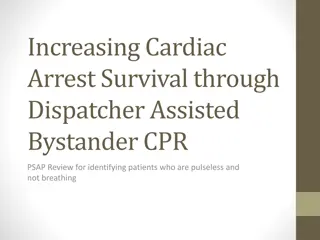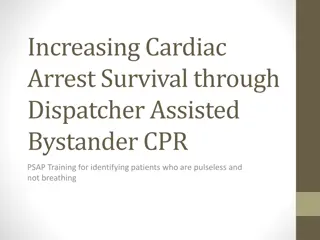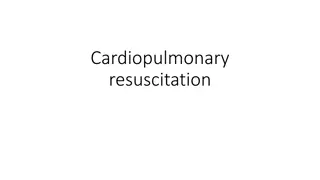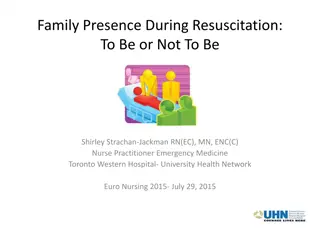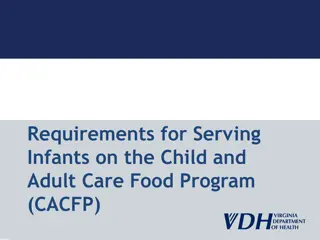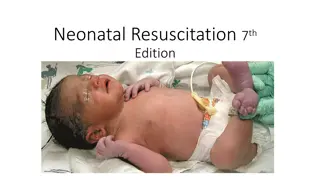CPR Guidelines and Techniques for Adult, Child, and Infant Resuscitation
CPR, or cardiopulmonary resuscitation, is a life-saving technique performed when someone is unconscious, not breathing, and shows no signs of life. This includes administering chest compressions and breaths in cycles, following specific guidelines for each age group (adult, child, and infant). Proper victim positioning, hand placement, compression rates, and breath timing are crucial aspects of performing effective CPR.
Download Presentation

Please find below an Image/Link to download the presentation.
The content on the website is provided AS IS for your information and personal use only. It may not be sold, licensed, or shared on other websites without obtaining consent from the author.If you encounter any issues during the download, it is possible that the publisher has removed the file from their server.
You are allowed to download the files provided on this website for personal or commercial use, subject to the condition that they are used lawfully. All files are the property of their respective owners.
The content on the website is provided AS IS for your information and personal use only. It may not be sold, licensed, or shared on other websites without obtaining consent from the author.
E N D
Presentation Transcript
Introduction What do you know about CPR? Under what circumstances would you perform CPR? Unconscious Not breathing No signs of life (pulse)
Objectives The student will be able to: Identify basic guidelines for performing CPR Perform Adult, Child & Infant CPR
Combination of chest compressions & breaths One cycle consists of 30 chest compressions followed by 2 ventilations 5 cycles every 2 minutes 100 chest compressions per minute 30 compressions in 18 seconds
Start chest compressions ASAP and do quickly Tune of the song Staying Alive or Another One Bites the Dust Each breath should be about 1 second in length Each breath should make the victim s chest rise & fall
Victim must be: Flat on back On a hard surface Rescuer Kneel at the side of victim With your Gluteus maximus off your heels
Find the Xiphoid Process Place 2 fingers on the Xiphoid Process Put other hand superior to fingers on sternum Hand Placement
Bottom hand Heel of hand on sternum Place other hand on top of bottom hand Keep fingers off chest Interlock fingers Hand Placement
Elbows locked out Shoulders directly over the Victim Rock at the Hips
Adult CPR: 2 hands over lower half of sternum Compress victim s chest 1 1/2 2 Breathe until chest rises About 1 second per breath 30 compressions : 2 breaths 30 compressions per 18 seconds 100 compressions per minute
Child CPR: 1 or 2 hands on lower half of sternum Compress victim s chest 1-1 inches Breathe until chest rises About 1 second per breath 30 compressions : 2 breaths 30 compressions per 18 seconds 100 compressions per minute
Infant CPR: 2 or 3 fingers just below nipple line Compress victim s chest - 1 inch Breathe until chest rises About 1 second per breath 30 compressions : 2 breaths 30 compressions per 18 seconds 100 compressions per minute
Victim Shows signs of life Scene becomes unsafe AED is ready to use Another trained person can take over or EMS arrives Rescuer is too physically exhausted to continue
Check Scene Safe Unsafe Check Victim Consciousness Airway Open - head tilt, chin lift Breathing Look-Listen-Feel 10 sec Circulation Pulse carotid/brachial Call 911 Care
Care Give 2 rescue breaths Give 30 chest compressions Complete 5 cycles (2 minutes) Re-Check ABC s
*CPR Adult - 1:00 - http://www.youtube.com/watch?v=2Oc7LWNHgm4 &feature=related *CPR Child :54 - http://www.youtube.com/watch?v=SvmzWOuFWK M&feature=related *CPR Infant :40 - http://www.youtube.com/watch?v=kfxeOP4ILbA&fe ature=related
Get with your partner and perform CPR on the manikins Remember to use breathing barriers and clean the manikins between users
Stayin Alive - Bee Gees - video - 3:55 - http://www.youtube.com/watch?v=IHWeuQyFouo& feature=list_related&playnext=1&list=MLGxdCwVVU LXddklmvdOPrEiq6YQDt3CS9 Another One Bites the Dust - Queen - lyrics - 3:36 - http://www.youtube.com/watch?v=CWsJcg-g1pg



